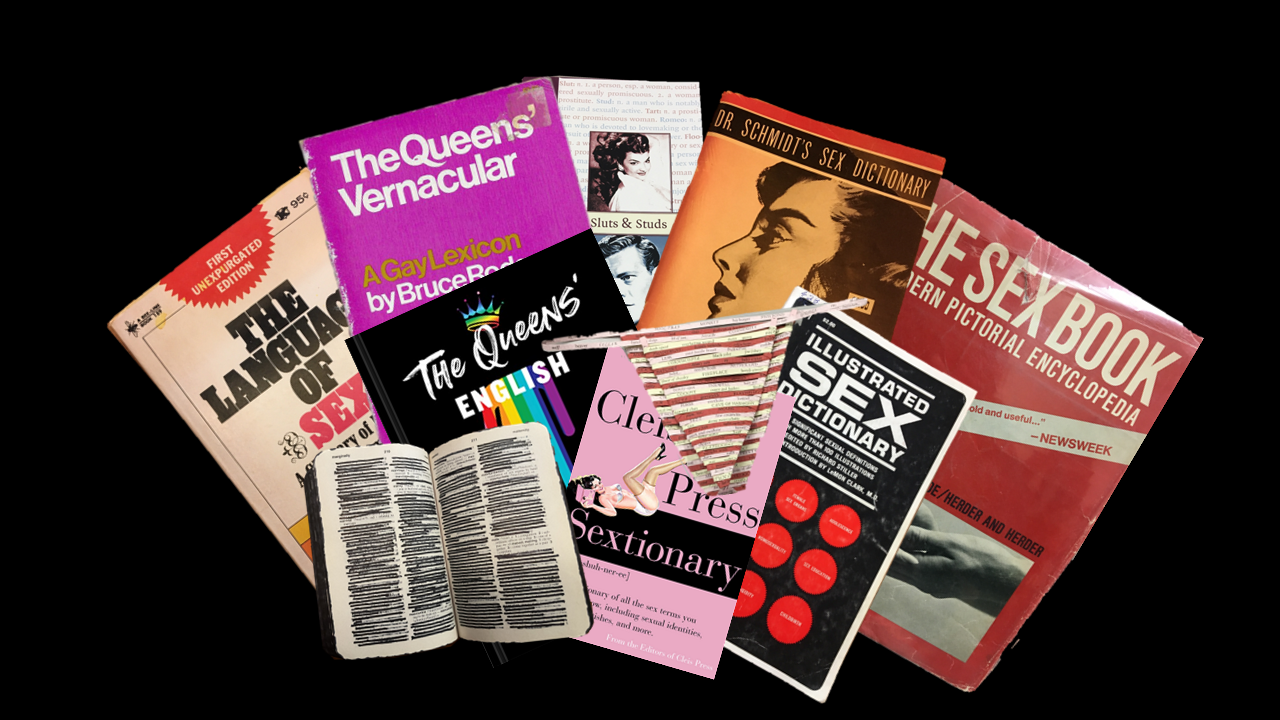Lindsay Rose Russell
SEX AND LEX
 Professor Russell’s second book, Sex and Lex, surveys the intersections of sex, sexuality, and lexicography. Terms for sexed persons, parts, and acts have long been a fear and fascination for English speakers and writers. This book therefore investigates not only how English has named sex and sexuality but also how its speakers have catalogued, circulated, and censored those words and meanings over time and into the present. Definitions of sexual vocabulary appear in early canting dictionaries that voyeuristically reveal the language of criminal activity; in erotic and courtship dictionaries that promise poetic proficiency in romantic words for men in search of a marriage or mistress; in household and medical dictionaries that describe anatomy or prescribe remedies to sexual disfunction; in family and children’s references that narrate processes of maturity and practices of sexuality; in gay and lesbian dictionaries that often comically catalogue homosexual terms. This book constitutes an ambitious bibliography and incisive thematic overview of English dictionaries that treat sex and sexuality. Against this backdrop, Sex and Lex considers how mainstream dictionaries of the past and present have and, as importantly, have not treated terms to do with sex and sexuality, often pitting publishing interests against editorial commitments.
Professor Russell’s second book, Sex and Lex, surveys the intersections of sex, sexuality, and lexicography. Terms for sexed persons, parts, and acts have long been a fear and fascination for English speakers and writers. This book therefore investigates not only how English has named sex and sexuality but also how its speakers have catalogued, circulated, and censored those words and meanings over time and into the present. Definitions of sexual vocabulary appear in early canting dictionaries that voyeuristically reveal the language of criminal activity; in erotic and courtship dictionaries that promise poetic proficiency in romantic words for men in search of a marriage or mistress; in household and medical dictionaries that describe anatomy or prescribe remedies to sexual disfunction; in family and children’s references that narrate processes of maturity and practices of sexuality; in gay and lesbian dictionaries that often comically catalogue homosexual terms. This book constitutes an ambitious bibliography and incisive thematic overview of English dictionaries that treat sex and sexuality. Against this backdrop, Sex and Lex considers how mainstream dictionaries of the past and present have and, as importantly, have not treated terms to do with sex and sexuality, often pitting publishing interests against editorial commitments.
Taken together, the profusion of sexy lexicons and the problematics of sex in staid ones, reveal the importance of taboo terminology to the genre’s invention, circulation, and saleability as well as its methodological weaknesses that have tended to favor heteronormative and patriarchal forms of sexuality and being. Contemporary online dictionaries have been quick to acknowledge nonbinary personal pronouns and new lexical items like genderqueer, but they have been slow, even resistant, to addressing the far more persuasive issue of retrograde sexual ideologies in example sentences, synonyms, usage notes, and definitions. Sex and Lex invites popular and professional investment in rethinking how dictionaries participate in creating human legibility by treating sex and sexuality.
